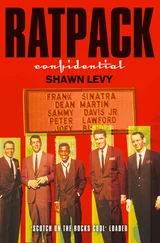That’s when he started spending his mission money.
As far as Jason knew, Grandpa had never told anyone about the day they went to see Evel Knievel, and he never brought it up again — though if he gave Jason a wink during a family dinner, Jason felt their secret was being invoked. The only person Jason ever told was Boyd, and he regretted it. Before the jump, Boyd had been merely dismissive of Evel Knievel as a showboater and fool. After the canyon jump, he was merciless.
“Twenty-five bucks,” he scoffed. “You should have just burned that money.”
“It wasn’t my money.”
“It’s just so hilarious. I about shit myself.”
“As usual.”
Jason was whispering, standing in the kitchen with the long green phone cord wrapped around his arm. His mom walked in, set a potted plant in the sink, and Jason moved around the half wall into the living room.
“Were you laughing pretty hard?” Boyd asked. “I bet you were laughing your ass off.”
Jason had not been not laughing his ass off. He had felt what happened as a nauseating throb below the sternum. There had been an instant that day when he had come to a conclusion: Evel Knievel would clear the canyon. This faith thrived briefly, and it was as wrong as could be. Because Jason had a lifetime of practice in forcing meaning onto events — attaching morals to stories, locating God’s hand in the smallest events — he decided this had identified something about him, something large and definitive and fundamental. A failure to see correctly.
• • •
Jason’s parents arrive, and they stop at the edge of the waiting area — not even a room, just a space off a hallway, defined by a thin rug and two vinyl-covered couches. His father clears his throat. “So?”
“Not sure,” Jason says. “They’ve got him in there doing something or other. They said someone would be out to let us know what’s happening, but it’s been about an hour.”
His parents stand behind the couch, as though they might not be staying. Jason’s father is tall and lean, but gone slumpy in the middle and always blushing. Jason’s mother is shorter, pretty at a distance and plain up close: something practical and taciturn in her short brown hair and bobbed nose, her splintery hazel eyes.
They sit down, and Jason’s mother peppers him with questions: How had they found him? How bad was his breathing? Did he say anything about what happened? Did the doctors act concerned?
“I’d like to lead us in a prayer,” Jason’s father says.
Jason’s neck crawls with embarrassment, because of Boyd and because they are sitting here where anyone might just come walking up. But he bows his head and folds his arms.
“Our Father in Heaven,” his father begins, in the bass drone that sounds as though each word were being tugged from a posthole. “We come before you this evening to ask that you look after our father and grandfather, to ask you to protect him in his time of need.” Jason cuts a look to Boyd, smirking. “We ask that you will bless him with the strength to fight his infirmities, and we ask that you help us stay strong to provide him the help he may need, our Father who art in heaven, to do for him, at this time in his life, as he has done for so many in his own life. In the name of Jesus Christ, amen.”
With every amen lately, Jason feels a small, hollow place where something else used to be. He’s been coming unstuck from the church for months, questioning, doubting, and bored. Three hours of church on Sundays, Family Home Evening on Mondays, youth group on Wednesdays, prayer five million times a day. He has simply taken the measure of that life, of the people in the ward, and decided he doesn’t want it. He wanted to be different, and he wanted other people to know he was different, and by the time he recognized this, he already was different.
He was baptized at age eight. He often thinks of that day — the gleaming font and the scratchy, laundered feel of the baptismal garment, a terry-cloth coverall. The font was a huge tub sunk in the floor in a small room at the wardhouse. Family and friends filled the folding chairs. After a prayer and scripture readings by the bishop, Jason went to the edge of the font, at the top of a set of tiled stairs that sank into the water. Dad waited below, waist deep, hands folded before him and the wrists of the garment dampened darkly. He was solemn, unsmiling, and yet Jason knew it was a joyful moment for him. As Jason stepped down, he had the sensation that people were rising above him — Mom in the front row, tears in her eyes, Aunt Bonnie and Jenna and their families, friends from the ward. Dad read the prayer slowly, then laid Jason back into the cool, chlorinated water. When he emerged, he felt like a sleek animal, a cheetah or a puma, fast and glistening. Stepping out, though, he felt the garment cling heavily, and he slopped back to the changing room, where the day resolved itself in the most ordinary sensations: dress shirt sticking to his humid skin, the damp smell of towels and worn socks, the sight of looped black coils of hair on his father’s chest, the echoing sound of him tapping a comb on the sink.
Mom made hamburger pizza for dinner that night. She and Dad were happier about this than about anything Jason had ever done, it seemed — way happier than the time he brought home straight A’s, or earned the Webelos award in Cub Scouts. Now he was a full member of the church. Accountable in the eternal ledger. That night, as she tucked Jason into bed, Mom talked about eternity, about the never-ending time to come. Though Dad was the patriarch, it was Mom — the convert — who talked to him the most about the faith and righteousness, the one who seemed to take it to heart in day-to-day life.
“From now on, son, your actions have consequences forever,” she said, smoothing his stiff hair with her hand. “We can live together as a family for time and all eternity. Never be apart. But we must be righteous. You must be righteous. You will, won’t you, son?”
Whatever it was that Jason was supposed to feel at this moment, he didn’t. But because it was so clearly the thing to be done, he said, “I’ll be righteous, Mom.”
• • •
The doctor arrives, jocular and smiling in his square metal-framed glasses. He tells them it appears Grandpa has an advanced form of emphysema, and he’ll need to stay at least another night.
“Keep an eye on things,” the doctor says, nodding. “Try to get some pictures of his lungs.”
Emphysema. Though he’d never smoked or worked in an asbestos mine.
“Sometimes it happens,” the doctor says. “Not for any reason we can see.”
Jason’s parents want to stay at the hospital, so he heads to Boyd’s for the night. He loves staying over there. There are no rules. Boyd’s mom is gone most of the time, they make a mess and no one complains, and he doesn’t have to worry about his parents coming in and deciding, mid-episode, that Kojak isn’t “appropriate.”
At Boyd’s, they make two frozen pizzas and watch TV while Boyd’s mom works her shift at the Lincoln Inn. Boyd sits cross-legged on his couch — he calls it Indian style, sarcastically. Where Jason is tall and ungainly, Boyd is thick and earthbound, head like a medicine ball, with a wide, flat nose and thick black hair, black eyes, and a shaggy smile that looked sheepish at first and then defiant. At school, the other kids always call him “Chief” or “Little Bear” or something, and he always responds, “Good one, George,” or, “Hilarious once again, George.” Only Jason knows that “George” is Custer, and that in Boyd’s happiest fantasies he rejoins his Indian brothers and sisters and rides down hard on Gooding High School.
Boyd says, “Well, dude, yes or no?”
Читать дальше












